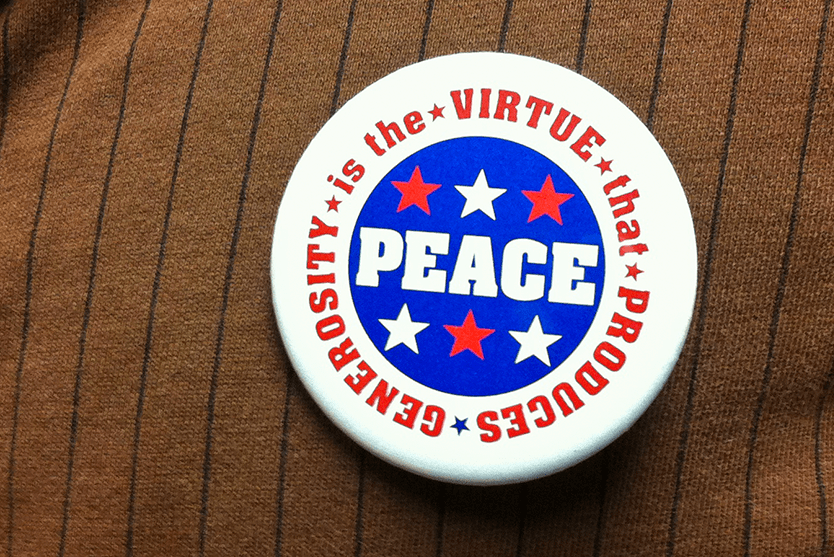
The murders of Alton Sterling and Philando Castile, the mass-shooting by snipers of police in Dallas on Thursday night — these kinds of events leave us all reeling and feeling powerless. How can we contribute to peace rather than further division?
It’s our hope that, as we try to process this heartbreaking week, this collection of articles from the LionsRoar.com archives can be of help and comfort.
“A Buddhist Cop’s Approach to Justice” — Cheri Maples, a student of Thich Nhat Hanh and former police officer, addresses the current crisis in policing and how a Buddhist outlook could help.
“Making Peace in America’s Cities” — The Dalai Lama has inspired a new generation of urban activists who know that inner and outer peace are one. Barry Boyce takes you to two cities where they’re making a difference.
“We Cry Out for Justice” — There will only be social justice in America, says Jan Willis, when we see all people as our equals. She offers an ancient Buddhist meditation to help us do that.
“There is no path to peace. The path is peace.” — adapted from Thich Nhat Hanh’s talk to members of the United States Congress on September 10, 2003. Here the teacher explains why only deep listening, mindfulness and gentle communication can remove the wrong perceptions that are the foundation of violence. An excerpt:
“All the energies of anger, hatred, fear and violence come from wrong perceptions. Wrong perceptions result in a lot of anger, mistrust, suspicion, hate and terrorism. You cannot remove wrong perceptions through punishment. You have to do it with the tools of deep and compassionate listening and loving speech.”
In “Building a Community of Love,” Nhat Hanh joins the author bell hooks in conversation, and addresses, among other things, anger:
By taking a look at your anger it can be transformed into the kind of energy that you need – understanding and compassion. It is with negative energy that you can make the positive energy.
In “Toward a Worldwide Culture of Love,” hooks explains why the practice of love is our most powerful antidote to the politics of domination, and why this practice must be a preliminary for us if we wish to pursue peace and justice.
“Enter… The Bodhisattva” — David Loy on why the bodhisattva ideal is what the world needs now.
In “Choosing Peace,” Pema Chödrön offers that, in the phase of threatening aggression or a perceived wrongdoing, “what we need to do is to neither reject nor indulge in our own emotional energy, but instead come to know it,” and in so doing, override our impulse to try and “settle the score” – which so often makes things worse.
“Four Ways to Connect with Your Community” — Whether you’re part of a full-scale Buddhist center or the humblest of sitting groups, there’s always more you can do to share your energy and practice with others. Brooklyn Zen Center executive director Greg Snyder shares four tips for a deep and helpful relationship with the community around you.
“The Problem of Evil” — There may be no good or evil in absolute reality, but in the relative world there certainly is. When people do such terrible things, can we really believe in human goodness? Zoketsu Norman Fischer tackles the problem of evil.
“Kindness Changes Everything” — Noah Levine on how the practice of loving-kindness changes us, and our world.
“Practicing Loving-kindness in the Face of Danger” — Russell Evans explains how the practice has helped him to more skillfully respond to random violence when it occurs.
“The Virtue of Civility,” a 2005 panel on bringing depth, respectfulness and integrity back to our national discourse, featuring Nonviolent Communication pioneer Marshall Rosenberg, former member of the US House of Representatives Patricia Schroeder, philosophy professor Mark Kingwell, and NPR’s Jeffrey Dvorkin.